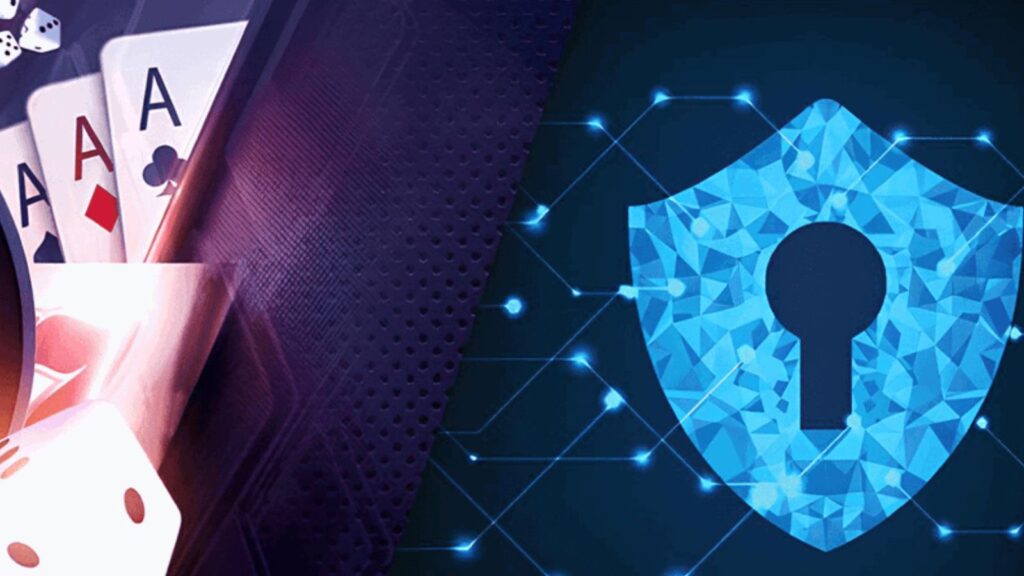As digital casinos thrive in a data-driven world, cybersecurity has become the invisible croupier protecting the house—and the players.
Online casinos are no longer fringe entertainment. They’ve become sprawling ecosystems of data, risk and real-time interaction, dealing with everything from cross-border payments to AI-driven gameplay. With this growth comes an unavoidable pressure: safeguarding sensitive user data, preserving fairness and protecting platforms from evolving cyber threats. And unlike brick-and-mortar establishments, these digital arenas don’t get to close their doors at 2 a.m. They run constantly, meaning so do the risks.
The Data Stakes Are High
It’s easy to overlook just how much personal data a single player hands over to an online casino. Name, location, banking details, gameplay history, device IDs—sometimes even biometrics. Multiply that by millions of users across thousands of platforms and the result is a goldmine for malicious actors.
Many modern online casinos operate on cloud infrastructure, which enables scalability and global reach but increases exposure to security vulnerabilities. This has made encryption protocols and zero-trust architecture central to platform design. The best systems no longer assume internal networks are safe by default. Instead, they verify every action as though it comes from an external source.
But the threat landscape keeps shifting. Phishing attacks, man-in-the-middle hacks and API exploitation all target both users and operators. The line between a careless click and a catastrophic breach has never been thinner.
Licensing Isn’t Just Bureaucracy—It’s Security
While players often focus on bonuses and flashy interfaces, regulatory compliance is arguably the most important layer of defence. Licensing bodies like the UK Gambling Commission or Malta Gaming Authority require rigorous technical audits before a casino can operate. These audits cover not just payout fairness and RNG validation but also data protection protocols and disaster recovery planning.
Where a platform is licensed matters. Operators registered under less stringent jurisdictions may not enforce the same cybersecurity standards. When engaging with any online casinos, it’s worth checking under the hood—not just for the games, but for the safeguards.
Some platforms go beyond compliance by offering third-party casino reviews that evaluate technical features, not just game selection. These reviews help spotlight whether a casino actually encrypts user data or simply claims to.
Tech Beneath the Tables
Most casual players don’t see the backend infrastructure supporting their favourite slots and table games. But behind the curtain, things like end-to-end encryption, tokenisation and DDoS mitigation tools are doing heavy lifting. When a user logs in to spin the reels of popular online slot games, that single action activates a complex dance of security layers working in real time.
Some platforms now integrate blockchain technology to offer transparent transaction logs and improve tamper resistance. While not yet industry standard, these features appeal to the growing base of users who value decentralisation and traceability.
Meanwhile, AI and machine learning are playing a dual role—on one hand, personalising gameplay and bonuses, but on the other, helping casinos detect fraud and suspicious behaviour. Anomalies in player behaviour can now be flagged in milliseconds. This allows operators to act fast against identity theft, payment fraud, or bot activity.
Bonus Systems and Risk Profiles
Bonuses aren’t just marketing fluff. They’re vectors for exploitation if poorly protected. Bonus abuse, where players attempt to game the reward systems, has led casinos to implement increasingly complex risk profiling algorithms. These use behavioural analysis to track login patterns, betting anomalies and geolocation inconsistencies.
That said, platforms must walk a tightrope. Overzealous profiling can lead to false positives, flagging legitimate players as suspicious. For the user, this means more identity checks, delayed payouts, or even account freezes.
For readers curious about how platforms balance these risks, many top online casino sites now explain their fraud prevention tools (at least in broad terms) on dedicated security or FAQ pages. These can be dry reads, sure, but they show what a site is doing behind the scenes.

The Future Is (More) Secure
The next phase in casino cybersecurity may well involve biometric logins, multi-factor authentication and user-controlled data vaults. Already, some operators are testing facial recognition to prevent underage access or banned users from registering with fake IDs.
At the same time, legislation around digital gambling is tightening across Europe, Asia and North America. As governments demand greater transparency, casinos will need to make their systems not just safe, but demonstrably so.
For players, this means paying closer attention to casino reviews that go beyond surface-level commentary. Digging into platform terms, audit history and data storage policies is no longer paranoid—it’s smart.
The Stakes Behind the Screens
Cybersecurity might not be the most visible part of online gambling, but it’s foundational. Whether you’re spinning a reel or transferring funds, every interaction relies on a system that must be resilient, encrypted and constantly evolving. While bonuses and aesthetics get the attention, it’s the integrity of the platform that determines whether users stay or leave after a breach of trust.
As cyber threats grow more sophisticated, so must the defences. The platforms that endure won’t just offer variety or flash—they’ll be the ones quietly investing in the architecture that keeps risk contained and users protected.



